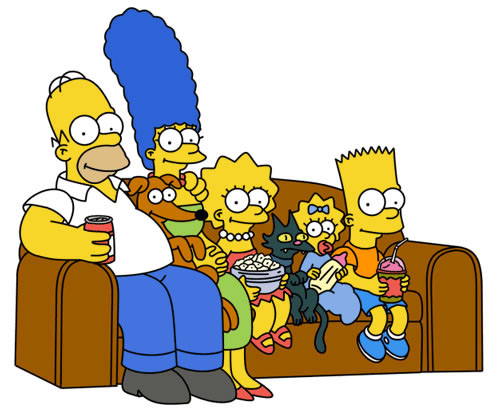What The Simpsons Can Teach Us About Siblings
What can America’s favorite yellow cartoon family teach us about family dynamics?
By Hannah Dreyfus
Contributor

PARADE: The oldest child is stereotypically responsible and overachieving—so what went wrong with Bart?
Logan: Ha! Funny question. Research about the importance of birth order is actually quite controversial—many psychologists don’t subscribe to the idea that birth order plays a dominant role when it comes to determining personality. However, psychologists who do think birth order is a dominant characteristic talk about an eldest child’s experience of being “dethroned.” When a second sibling comes along, the oldest no longer has all of his parents’ attention—he loses the throne, so to speak. How the parents handle this shift can affect the oldest child’s relationship to his/her new sibling.
In the case of Bart, the series also makes it pretty clear that he was born evil. I mean, he grabs a lighter and tries to light Homer’s tie on fire minutes after his birth. In a case this extreme, I’m not sure birth order will make that big a difference one way or another.
Let’s talk about Lisa, the precocious, independent child. How is she affected by having Bart as a brother?
Bart is clearly the child who demands primary attention. Research shows that in cases such as these, the “good” child becomes as independent and self-reliant as possible. This is certainly the case with Lisa—Bart’s continual antics push her to be even more responsible.
It’s interesting to note how Bart responds when Lisa is given attention. In one episode, Lisa develops her own Barbie doll and receives a lot of attention for her invention. Bart goes crazy and starts screaming, crying, and bouncing off the walls. Although it’s an exaggerated case, a child who grows accustomed to receiving the majority of the family’s attention might not take it well when that dynamic shifts.
So what’s the most important lesson we can learn from the Simpsons about family relationships?
There are two. First, some kids will turn out well and some will turn badly no matter what parents do. And second, at the end of the day, shared love, commitment, and connection are the most important forces holding a family together. They stick, no matter what.
# # #